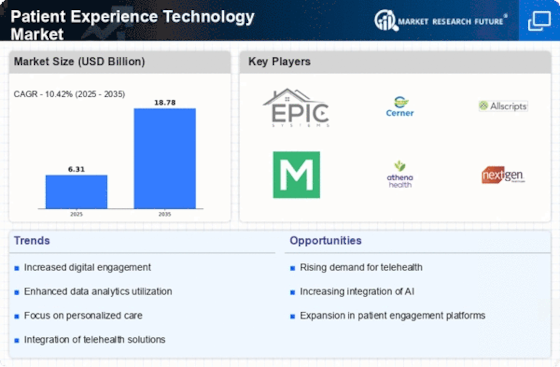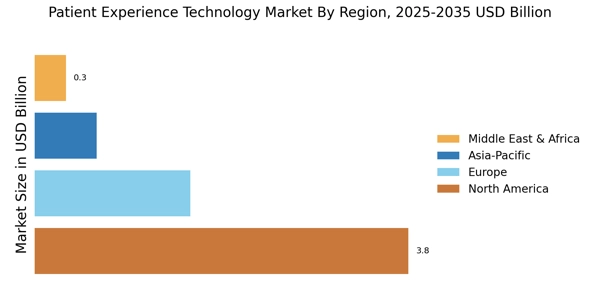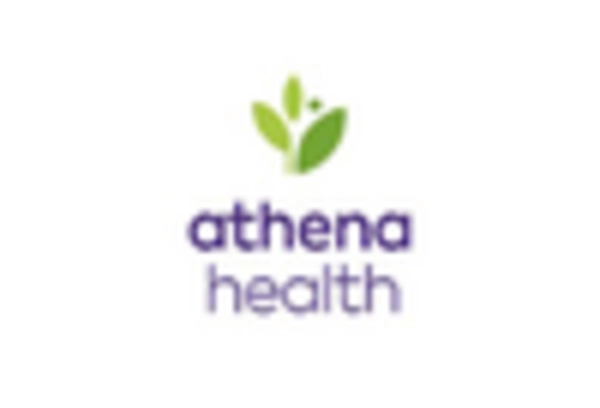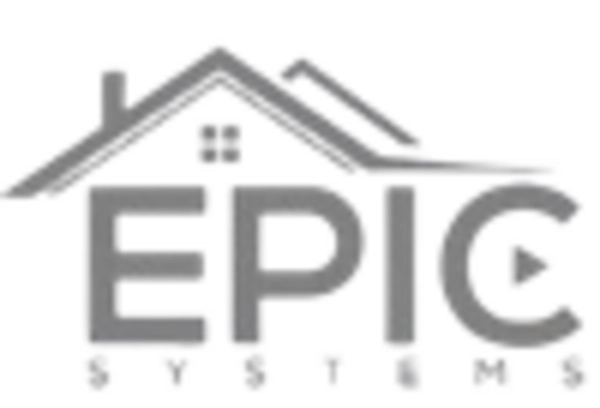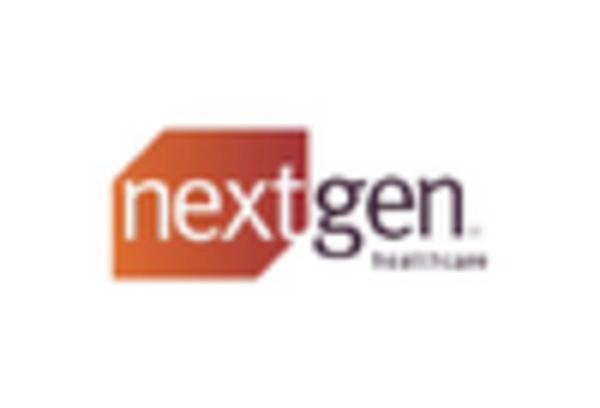Regulatory Support for Health IT
Regulatory support for health information technology (IT) is a crucial factor driving the Patient Experience Technology Market. Governments and regulatory bodies are increasingly promoting the adoption of health IT solutions to enhance patient care and safety. Initiatives such as financial incentives for electronic health record (EHR) adoption have led to a surge in technology investments by healthcare organizations. Data suggests that the EHR market alone is expected to reach USD 40 billion by 2026, reflecting the growing emphasis on digital solutions. This regulatory backing not only fosters innovation but also encourages healthcare providers to invest in technologies that improve patient experiences, thereby shaping the future of the Patient Experience Technology Market.
Rise of Patient-Centric Care Models
The shift towards patient-centric care models is a pivotal driver in the Patient Experience Technology Market. This approach emphasizes the importance of involving patients in their own care processes, leading to improved health outcomes and satisfaction. Research indicates that organizations implementing patient-centric strategies report a 20% increase in patient satisfaction scores. By leveraging technology, healthcare providers can facilitate better communication and collaboration with patients, ensuring their preferences and needs are prioritized. This trend is likely to continue as more healthcare systems recognize the value of patient engagement, thereby propelling the growth of the Patient Experience Technology Market.
Integration of Artificial Intelligence
The integration of artificial intelligence (AI) into the Patient Experience Technology Market is transforming how healthcare providers interact with patients. AI-driven tools enhance patient engagement by offering personalized recommendations and predictive analytics. For instance, AI chatbots can provide immediate responses to patient inquiries, thereby improving satisfaction levels. According to recent data, the AI segment within healthcare is projected to grow at a compound annual growth rate of over 40% in the coming years. This rapid growth indicates a strong demand for AI solutions that streamline operations and enhance patient experiences. As healthcare organizations increasingly adopt AI technologies, the Patient Experience Technology Market is likely to witness significant advancements in service delivery and patient outcomes.
Growing Demand for Remote Patient Monitoring
The growing demand for remote patient monitoring (RPM) solutions is significantly influencing the Patient Experience Technology Market. As healthcare systems seek to provide continuous care outside traditional settings, RPM technologies enable real-time tracking of patient health metrics. This trend is particularly relevant as patients increasingly prefer to manage their health from home. Market data indicates that the RPM market is projected to grow at a CAGR of 25% over the next five years. This surge is driven by advancements in wearable devices and mobile health applications, which empower patients to take an active role in their health management. Consequently, the Patient Experience Technology Market is likely to expand as healthcare providers adopt RPM solutions to enhance patient engagement and satisfaction.
Increased Focus on Data Security and Privacy
The increased focus on data security and privacy is a significant driver in the Patient Experience Technology Market. As healthcare organizations adopt more digital solutions, the protection of patient data has become paramount. Regulatory frameworks such as HIPAA mandate stringent measures to safeguard sensitive information, prompting healthcare providers to invest in robust cybersecurity technologies. Data indicates that the healthcare cybersecurity market is expected to exceed USD 30 billion by 2026, reflecting the urgency of addressing security concerns. This heightened emphasis on data protection not only builds patient trust but also encourages the adoption of innovative technologies that enhance the overall patient experience. As a result, the Patient Experience Technology Market is likely to evolve in response to these security challenges.
.png)

